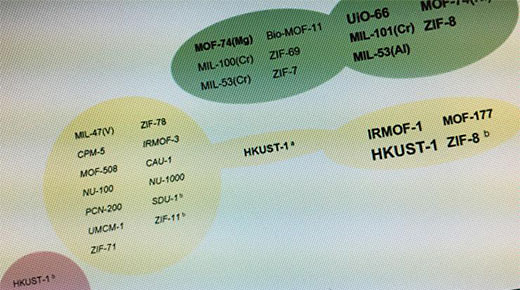Can companies rely on the results of one or two scientific studies to design a new industrial process or launch a new product? In at least one area of materials chemistry, the answer may be yes—but only 80 percent of the time.
|
ADVERTISEMENT |
The replicability of results from scientific studies has become a major source of concern in the research community, particularly in the social sciences and biomedical sciences. But many researchers in the fields of engineering and the hard sciences haven’t felt the same level of concern for independent validation of their results.
A new study that compared the results reported in thousands of papers published about the properties of metal organic framework (MOF) materials—which are prominent candidates for carbon dioxide adsorption and other separations—suggests the replicability problem should be a concern for materials researchers, too.
…

Add new comment